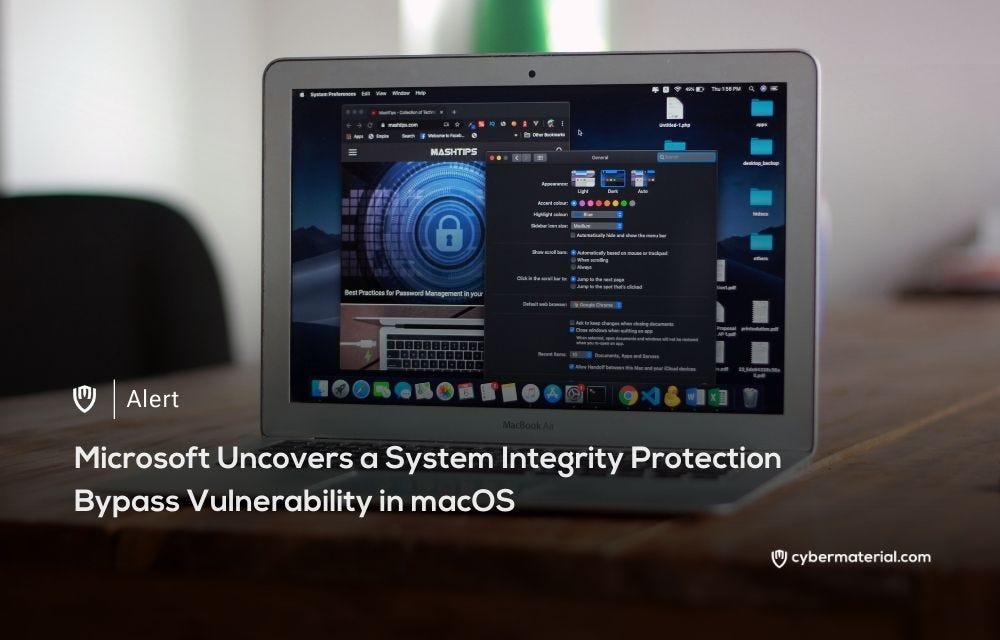
Microsoft researchers have recently identified a significant security vulnerability in macOS that could allow attackers to bypass System Integrity Protection (SIP) and install malicious kernel driver…

Microsoft researchers have recently identified a significant security vulnerability in macOS that could allow attackers to bypass System Integrity Protection (SIP) and install malicious kernel driver…